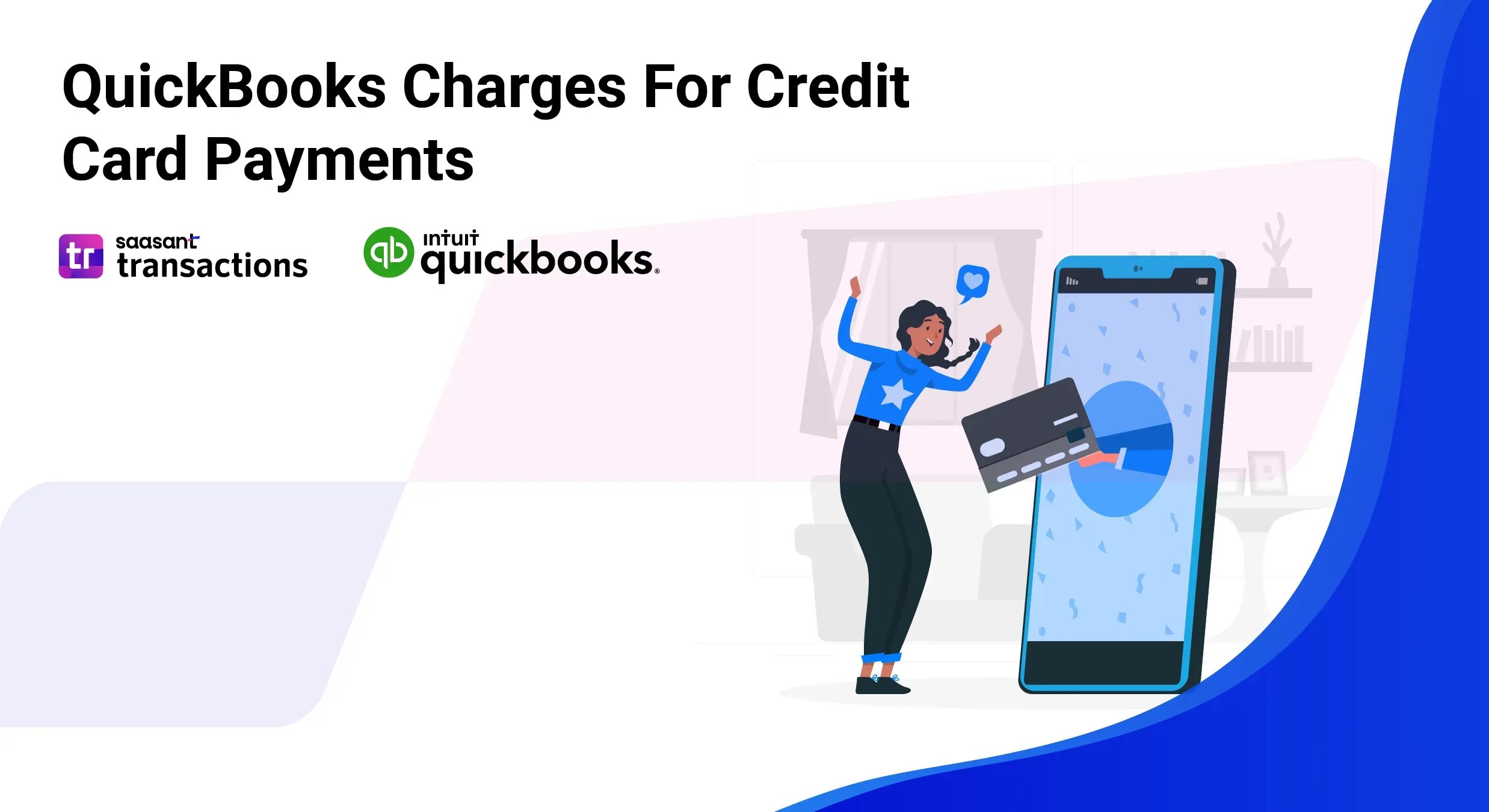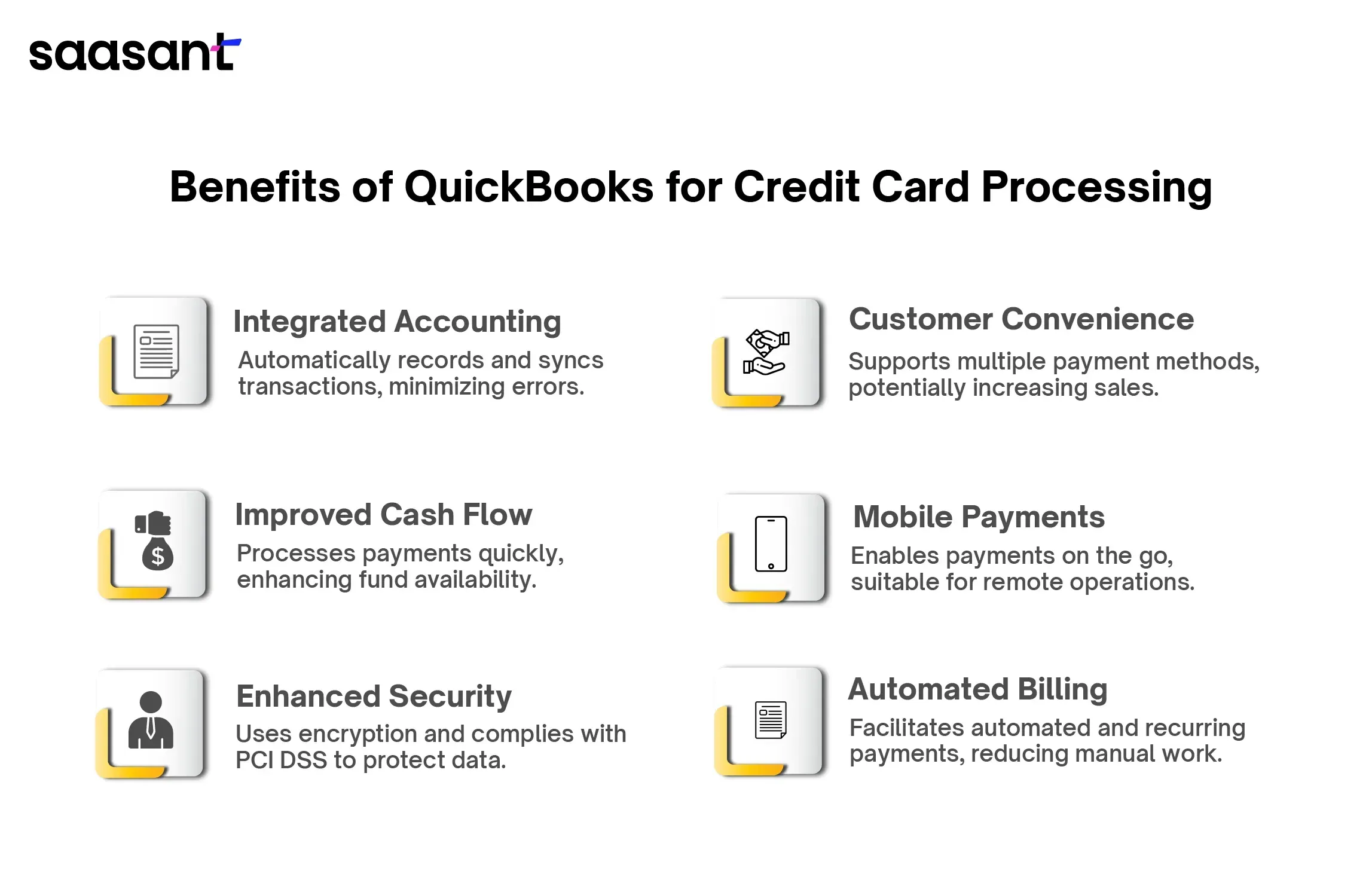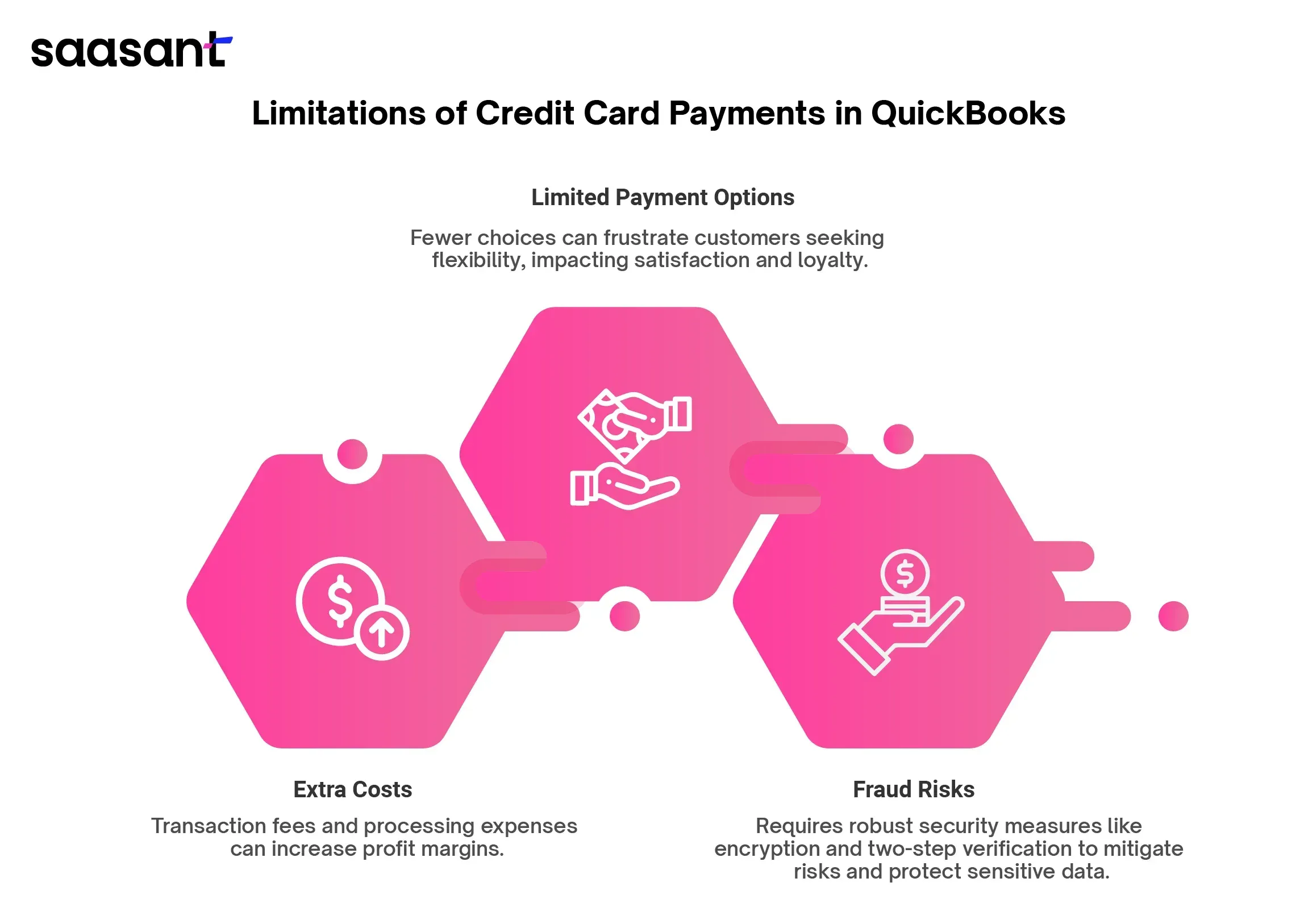How Much Does QuickBooks Charge For Credit Card Payments?
 Most people use credit cards because they are easy and convenient. If you’re running an eCommerce store and accepting credit card payments from your customers through QuickBooks, you must understand ‘how much QuickBooks charges for credit card payments.'
Most people use credit cards because they are easy and convenient. If you’re running an eCommerce store and accepting credit card payments from your customers through QuickBooks, you must understand ‘how much QuickBooks charges for credit card payments.'
This blog will walk you through the fees that QuickBooks charges for credit card payments, limitations on credit cards, and tips to minimize credit card fees.
Contents
What are QuickBooks Credit Card Processing Fees?
How Much Does Quickbooks Charge for Credit Card Payments?
Benefits of Using QuickBooks to Process Credit Card Payments
Limitations of Credit Card Payments in QuickBooks
Tips for Minimizing Credit Card Processing Fees
Conclusion
FAQs
What are QuickBooks Credit Card Processing Fees?
The cost of processing a credit card payment includes all the fees associated with completing a transaction. These fees are paid to your merchant service provider, the processor, the issuing bank, and the card association. While the interchange fee is set and non-negotiable, you can reduce your communications and processing fees.
For example, QuickBooks offers a 40% discount on transaction fees for merchants who handle over $7,500 monthly, which can be advantageous for businesses processing massive amounts. It's wise to shop around and compare rates, as finding a lower rate could save you money over time.
Additionally, it's crucial to research and choose a processor that meets your specific needs, including features like fraud prevention and the ability to process payments online.
How Much Does Quickbooks Charge for Credit Card Payments?
QuickBooks offers different credit card processing options, each with specific fee structures. The fees depend on the type of transaction, the QuickBooks service used, and whether the card is physically present.
When processing payments through QuickBooks, each transaction charges a fee that varies based on the payment method. Swiped payments attract a 2.4% fee. For invoiced payments, the fee is 2.9%. Keyed-in transactions, where card details are entered manually, are charged at 3.4%. ACH payments, which involve direct bank transfers, also carry a 1% fee per transaction.
Benefits of Using QuickBooks to Process Credit Card Payments
Using QuickBooks to process credit card payments offers several benefits that can improve the convenience of managing your business finances. Here are some of the key benefits:

Integrated Accounting
Credit card transactions processed through QuickBooks are automatically recorded and synced with your accounting records. This integration reduces the need for manual data entry, minimizes errors, and ensures that your financial statements are always up-to-date.
Improved Cash Flow
QuickBooks processes credit card payments quickly, so funds are typically available faster than checks or other payment methods. This quick process can improve your business's cash flow, which helps you manage expenses and investments more effectively.
Enhanced Security
QuickBooks uses robust security measures to protect sensitive payment information. This includes encryption and Payment Card Industry Data Security Standards (PCI DSS) compliance. Such security features help prevent fraud and protect your customers' data, giving you and your clients peace of mind.
Convenience for Customers
Allowing customers to pay through their credit card makes it easier for them to purchase products or services, potentially increasing sales. Customers can pay with their preferred payment method, whether through an online invoice, over the phone, or in person.
Mobile and Remote Payment Capabilities
With QuickBooks, you can accept credit card payments on the go using a mobile device. This is particularly beneficial for businesses that operate remotely, making it possible to secure sales wherever you are.
Automated Billing and Recurring Payments
QuickBooks allows for automated billing cycles and recurring payments, ideal for subscription-based services or regular clients. This automation ensures timely payments and reduces the administrative work associated with manual billing.
Limitations of Credit Card Payments in QuickBooks
While credit card payments in QuickBooks offer various benefits, they also have some limitations, like extra costs, potential fraud risks, and limited choices for customer payments. These challenges can financially affect businesses since extra fees linked with QuickBooks credit card payments can affect profit margins.

Furthermore, limited payment options affect customer satisfaction and loyalty. Thus, businesses should consider these factors carefully before fully choosing credit card payments in their QuickBooks setup. Using credit card payments in QuickBooks may lead to extra charges, including transaction fees and processing expenses, which can gradually reduce business profits.
Fraud risks in QuickBooks credit card payments demand strong security measures and risk management strategies to protect businesses and customers from fraudulent actions.
Employing encryption technologies to secure credit card data during transactions is essential to lowering fraud risk. QuickBooks enhances security through features like two-step verification, which asks for an additional verification code, reducing the chances of unauthorized access.
Credit card payments in QuickBooks might offer fewer payment choices for customers, potentially affecting their purchasing experience and preferences. This limitation might frustrate customers who prefer flexible payment options. As the demand for alternative payment methods like digital wallets and buy now, pay later services grows, businesses must adapt to accommodate changing customer preferences.
Tips for Minimizing Credit Card Processing Fees
Now that you're familiar with QuickBooks credit card processing fees and their costs, benefits, and limitations, let’s explore ways to reduce these processing fees.
The first step is to compare various payment processing services to identify the best fit for your business. Since these services vary in fees, it's crucial to evaluate different providers to select the most cost-effective rates.
Additionally, selecting the appropriate payment methods can reduce QuickBooks credit card processing fees. For instance, choosing PayPal Express Checkout for payments via PayPal can be more affordable than standard PayPal fees. Similarly, opting for ACH Direct when accepting ACH payments can also lower fees.
Moreover, using QuickBooks’ payment processing solutions can offer savings, especially when handling specific transactions like invoice processing or recurring payments. QuickBooks provides specialized services for these payment types, which can help minimize costs effectively.
Conclusion
The costs associated with QuickBooks credit card payments can vary depending on the chosen payment processing service and the specific payment methods used. While QuickBooks offers easy integration with various payment processors, each comes with its fees. Businesses can manage and potentially reduce the charges included with credit card transactions by carefully selecting a payment processing service that offers competitive rates and using cost-effective payment methods like PayPal Express Checkout or ACH Direct.
Additionally, SaasAnt Transactions can simplify the importation of credit card statements into QuickBooks, eliminating manual data entry and minimizing errors. SaasAnt has optimized this process, allowing for the efficient transfer of transaction data and significantly reducing the time spent on entries. The result? Daily hours saved, reduced costs, and exceptionally detailed financial records. SaasAnt has become more than just a tool; it's crucial to your financial management success.
FAQs
Does QuickBooks charge to accept credit card payments?
QuickBooks charges varying fees depending on the method of credit card payment processing. The charges are 2.4% for swiped credit cards and 2.9% for invoiced credit cards.
How do I avoid QuickBooks fees?
Setting up automated payments for QuickBooks services can help you avoid unwanted charges and simplify managing charges. By enabling automatic payments, QuickBooks users can guarantee timely transactions, thus avoiding late fees or penalties. This approach not only helps maintain budget control but also streamlines financial management.
What Type of Account is a Credit Card in QuickBooks?
In QuickBooks Online, a credit card is classified as a liability account. To ensure it’s recorded correctly, categorize credit card payments in QuickBooks Online by selecting 'Credit Cards' from the dropdown menu under 'Save account.' This categorization retains the credit card's nature as a liability within the system.